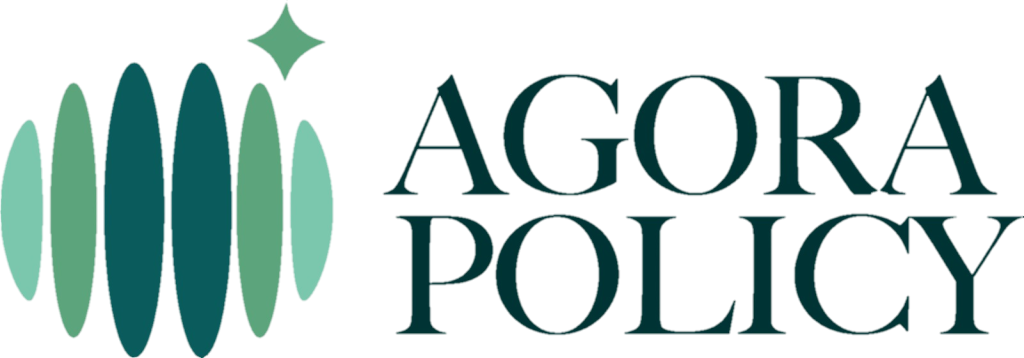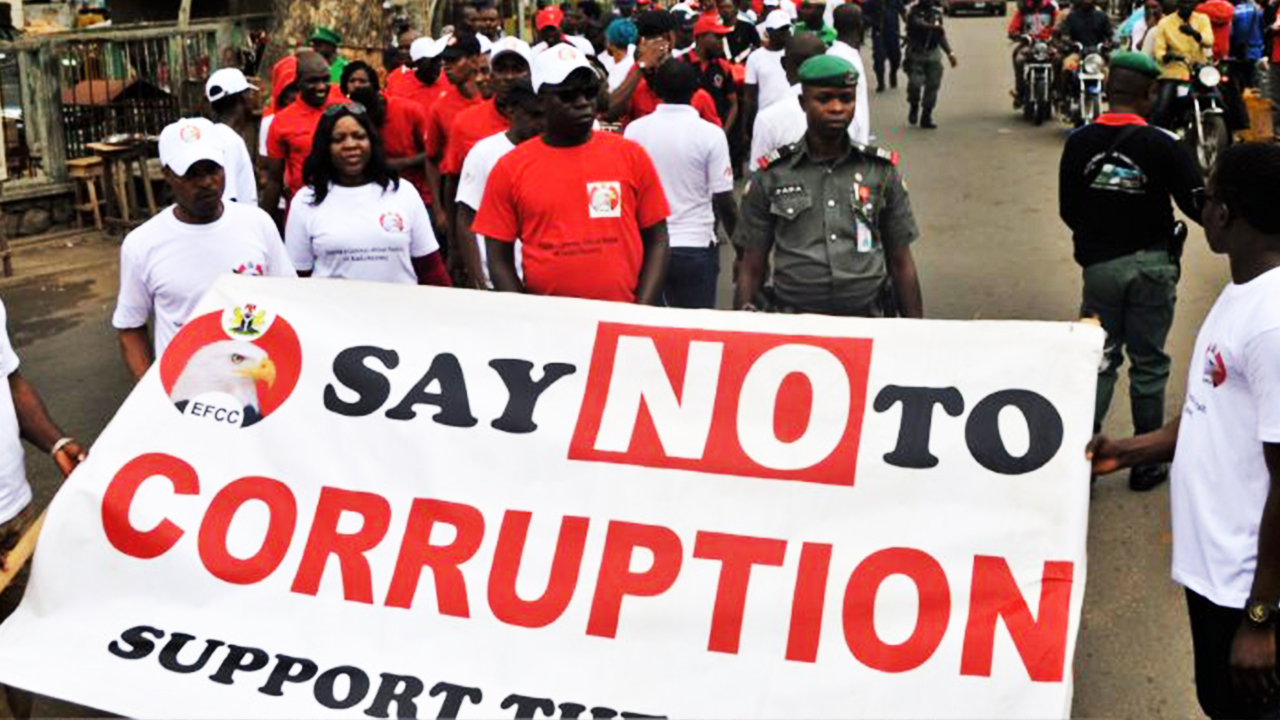By Ifetayo Idowu | Corruption has for long been a pervasive issue in Nigeria. It has had devastating consequences for the country’s economy, security and social relations. Also, the scourge of corruption has reinforced negative patterns of poverty and inequality in both public and private sectors.
Over time, several measures have been implemented by different administrations to combat corruption in the country. While some of these measures have made some dent, most have not had the desired impact. The problem persists. Nigeria is still perceived as one of the most corrupt countries in the world, ranking 150 out of 180 countries in the 2022 Corruption Perception Index of Transparency International (TI).
Last week, Agora Policy released a report titled “Imperative of Strengthening Nigeria’s Transparency and Accountability Measures”i. Produced with the support of MacArthur Foundation, the report x-rays 16 anticorruption measures in the country and advocates for sustaining and strengthening Nigeria’s transparency and accountability measures. It concludes with this evocative line: “whether now or in the future, Nigeria needs more transparency and accountability, not less.”
This intervention builds on and fleshes out one of the recommendations of the timely report: the need to deploy insights from behavioural science to effectively tackle the values, attitudes and narratives that enable corruption in the country. In short, the need to nudge Nigerians away from the costly and destructive practice of corruption.
The Unbearable, Multidimensional Costs of Corruption
To begin with, we need to establish that the economic and social costs of corruption in Nigeria are extensive. According to PwCii, the cost of corruption in Nigeria is estimated to reach nearly $2,000 per person in 2023. The organisation also estimated that, if not properly dealt with, corruption could cost Nigeria up to 37% of GDP by 2030.
It was also reported that between 2009 and 2020iii, Nigeria lost 619.7 million barrels of crude oil valued at N16.25 trillion to theft and sabotage, which are forms of corruption. In contrast, the combined allocation for healthcare and education was N6.79 trillion less than the amount lost to these forms of corruption for the same period.
The social cost of corruption can be seen in how corruption perpetuates inequalities and povertyiv. It has a disproportionate impact on the poor and the most vulnerable members of society. It reduces the amount of money available for job creation, relief activities and government’s poverty alleviation programmes.
It also increases the cost of social services, including health and education, and reduces access of vulnerable members of society to these services. This reflects in unbuilt, poorly-built and poorly-equipped schools, ill-equipped and understaffed hospitals, and poorly-built roads which increase transaction costs and accidents and reduce human welfare. Corruption also creates a system where justice and safety are not prioritised leading to safety laws and due process being ignored and leading to unavoidable deaths.
Corruption has also led to a breakdown of social capital in Nigeria. Social capital allows a group of people to work together effectively to achieve a common purpose. Without it, society experiences a decline in social cohesion and an increase in crime, among many other things. This is bad for nation building.
In summary, corruption is not a cost-free or a victimless crime.
The Nudge Approach to Anticorruption
The gravity and the cost of corruption make it imperative for Nigeria to constantly look for more effective ways of taming the scourge. One relatively new approach that can be engaged in the fight against corruption in Nigeria is nudging, an approach popularised by Cass Sunstein, a Harvard University professor, and Richard Taler, a University of Chicago professor.
Nudging involves using insights from behavioural science to design and drive campaigns for changes in norms, values, attitudes and behaviours to achieve desirable outcomes. It can be an effective tool in the fight against corruption. Even though the act of nudging itself is not a new thing, using it as an anti-corruption tool is relatively newv.
Nudging can be used as a tool to change the context in which decisions are made. It can be used to influence the way people act, without constraining their choices. In this way, it can be used as a supplementary tool in fighting corruption. Nudging is a subtle and non-coercive method that influences people’s behaviour in a positive way. It involves using indirect suggestions to influence people’s behaviour and decision making.vi
Nudging can be used in many ways to fight corruption. One way nudging can be used in Nigeria is to fight prevalent mentality such as “public money is everybody’s money” which Nigerians use to justify taking and misallocating public money; “where you work is where you eat” which people use to justify treating their employers unjustly. These sayings help people reinforce bad behaviours. In the same way, anti-corruption slogans can be employed as a tool to help shape people’s opinions about corruption, sayings things such as “keep nothing under the table, except your shoes” or “Fight corruption. Bring progression” can be employed. The first expression reinforces the message that anything that cannot be done in everyone's view is corrupt and the other talks about the damaging effects of corruption. Nudging can be used to influence mindset.
Similarly, nudging can be used as a tool reminding people to act honestly. Like telling a child “thank you” for doing something they haven’t done as a reminder, people need to be reminded to act honestly. This can be done either directly by reminding people to do the right thing because their actions have consequences before meetings start, or by using more subtle means like making financial decisions during certain periods of prosperity, like after payday.
Directly reminding people of the consequences of their actions or inactions is another way of nudging. One way this can be done in Nigeria is by humanising corruption, drawing a direct line between a father’s poor level of education and his poverty or the connection between an amputee and poor state of infrastructure and not-upholding safety measures. Nudging can be used to promote more positive choices.
Nudging can also be used as a tool that incentivises the preferred behaviour. Public workers can be awarded certain benefits for being transparent. The Agora Policy report stated that in Nigeria’s history only eight public officials have publicly declared their assets. Even though this act promotes transparency, no applause or recognition was given to these individuals. There is nothing to distinguish them from the people who act otherwise. In using nudging as a tool to incentivise the preferred behaviour, wrong and bad behaviour must also be punished. This is because when people see their peers getting away with violations, they are likely to join the bandwagon. Nudging can be used as a tool that informs and empowers people.
In conclusion, nudging presents a promising approach to tackling corruption in Nigeria. It offers a psychological approach in that it deals with the root and behavioural causes of corruption and promotes a culture of transparency and accountability. By complementing traditional anti-corruption measures with nudging, Nigeria can effectively reduce the costs of corruption on its development and on its citizens. This will ultimately lead to a more equitable and prosperous country.
*Ifetayo is a policy and data analyst at Agora Policy
Footnotes
[i]Agora Policy No.4 (2023) Imperative of Strengthening Nigeria's Transparency and Accountability Measures. Available at: https://agorapolicy.org/report/
[ii]PWC (2016) “Impact of Corruption on Nigeria's Economy.” PricewaterhouseCoopers Limited. Available at: https://www.pwc.com/ng/en/publications/impact-of-corruption-on-nigerias-economy.html.
[iii]Aduloju, Bunmi (2022) “NEITI: Nigeria Lost N16.25trn to Oil Theft, Sabotage in 12 Years.” The Cable, December 15. Available at:https://www.thecable.ng/neiti-nigeria-lost-n16-25trn-to-oil-theft-sabotage-in-12-years
[iv]World Bank (no date) Combating Corruption, The World Bank. Available at: https://www.worldbank.org/en/topic/governance/brief/anti-corruption
[v]Slota, A. (2018) The subtle science of nudging anti-corruption, Palladium. Palladium. Available at: https://thepalladiumgroup.com/news/The-subtle-science-of-nudging-anti-corruption
[vi]Mullet, T. (2022) “What are the advantages and disadvantages of nudging?” Warwick Business School, 14 February. Available at: https://www.wbs.ac.uk/news/what-are-the-advantages-and-disadvantages-of-nudging/



